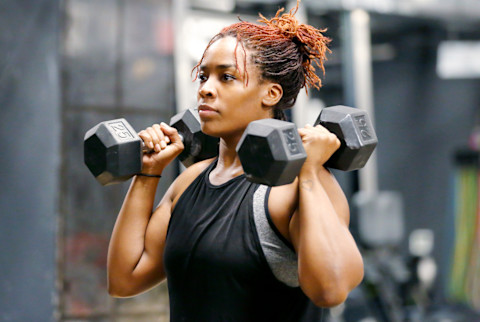How To Protect Yourself From Osteoporosis-Related Hip Fractures

Osteoporosis, a condition in which bones become fragile from tissue loss, affects 10 million Americans1 over the age of 50. While any bone is at risk of breaking in osteoporosis patients, hip fractures (i.e., a break in the thigh bone) are especially debilitating to the patient, their family, and the health care system due to their extensive treatment protocol and recovery period.
Osteoporosis & hip fractures
While hip fractures can happen during severe trauma (e.g., a car crash, long fall, etc.), they’re far more common in older osteoporosis patients—and their prevalence is only growing.
According to a scientific review published in 2023 by the Journal of Bone and Mineral Research, the global number of osteoporosis-related hip fracture cases are expected to nearly double by 2050. Based on current data, the review also found that up to 25% of females and 36% of males with osteoporosis-related hip fractures die within one year of their injury. Those that survive need to heavily rely on the support of both their families and the medical system during their long recovery.
The best way to prevent osteoporosis-related hip fractures is to strengthen bone density via physical activity (specifically, strength training—like weight lifting) and targeted nutrition.
How vitamin D promotes bone integrity
While calcium is often touted as the number one nutrient for fighting osteoporosis, vitamin D plays a massive role in protecting and strengthening the bones.
The essential fat-soluble vitamin supports calcium absorption in the gut and helps modulate healthy calcium concentrations2 throughout the body. In turn, that calcium is used to maintain muscle strength and remineralize bones (both of which help prevent fractures).
As we get older, we lose bone density and are more susceptible to vitamin D deficiency (VDD)—which affects 29% of all U.S. adults3 and, according to a 2021 review in the International Journal of Molecular Sciences, accelerates bone turnover, loss, and fractures4.
How to achieve vitamin D sufficiency
Healthy vitamin D status is critical for maintaining optimal musculoskeletal health, especially as we age. And the most effective way to achieve and sustain vitamin D sufficiency is with a premium daily supplement that delivers 5,000 IU of vitamin D3 (with built-in, or alongside, healthy fats for optimized absorption).
If your bones need some extra support, check out mindbodygreen’s roundup of the best vitamin D supplements for a list of high-quality contenders—you’ll be on your way to healthy vitamin D levels in no time!
The takeaway
Osteoporosis-related hip fractures are a global issue that’s on the rise, but there are ways to strengthen your bone integrity and prevent future injuries. Consider upping your intake of key nutrients (like vitamin D and calcium) and strength training to enhance your musculoskeletal well-being for years to come.
4 Sources
- https://www.cdc.gov/nchs/products/databriefs/db405.htm
- https://www.ncbi.nlm.nih.gov/books/NBK56061/#ch3.s11
- https://www.cambridge.org/core/journals/british-journal-of-nutrition/article/vitamin-d-deficiency-and-insufficiency-among-us-adults-prevalence-predictors-and-clinical-implications/44E436843510FE6BDE856D5BCB9C651F
- https://www.ncbi.nlm.nih.gov/pmc/articles/PMC8396272/
